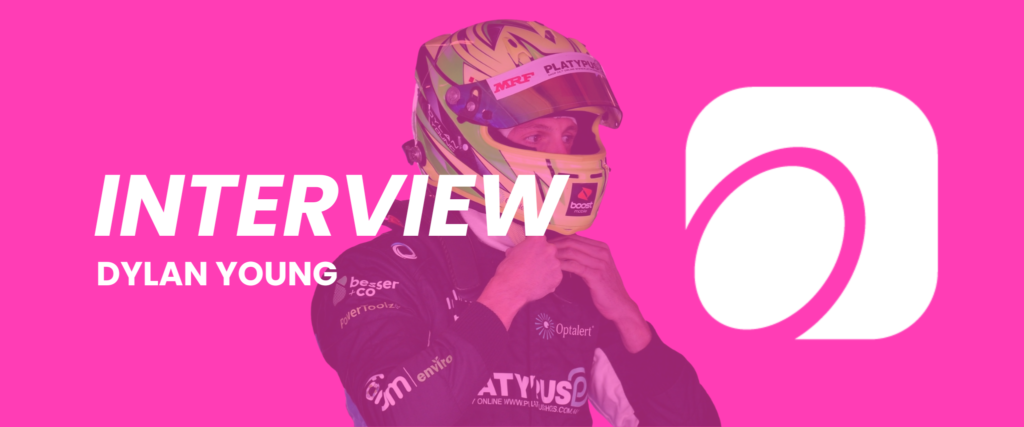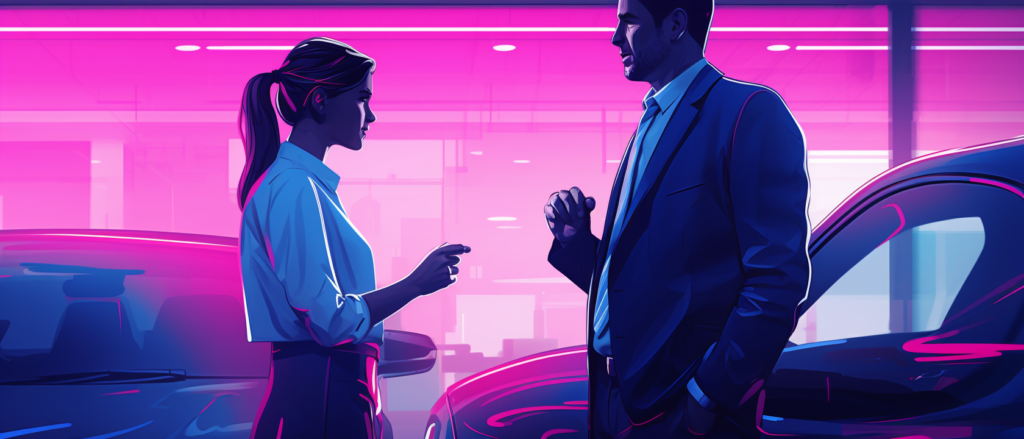Motor racing is both a physically challenging and mentally demanding sport. Its associated with a high degree of safety risk for drivers, whereby the slightest error could lead to fatal consequences. Drowsiness and inattentiveness are amongst the most dangerous risks faced by any driver, yet alone a race car driver who’s preparing to be at his peak performance on the track.
In an interview with Dylan Young, racing car driver, safety advocate and Optalert ambassador, he shares his insights into the dangers of drowsy driving.
What first drew you to motor car racing?
I first got hooked on racing when my Dad took me to the first Australian Formula 1 Grand Prix at Albert Park in 1996. It’s strange that I fell in love with it at first because all I remember is crying at how loud it was. But I think ultimately the sheer sound, speed and power of the cars is what drew my interest and it just spiralled from there. It’s all I was watching and wanted to do from then on.
A lot of science goes into ensuring race car drivers are at their peak performance. How important is sleep during training and before race day?
Motorsport is all about fractions of a second and so extracting every bit of performance both from the car, but equally from yourself is crucial. Sleep is so important, obviously after training to recharge but equally the night before driving or before a race. I aim to get at least 7 hours a night but that can be tricky at times. Sometimes we can get back to the hotel very late and have an early start the next day and your mind can be in overdrive thinking about a race.
Covid19 has been an unprecedented health crisis. How has it impacted your job and the car racing industry?
Covid19 has obviously hit so many people and industries quite hard and I doubt there’s too many people winning out of this current scenario. However, the travel and sporting industries took a huge hit. It was really frustrating as I finished Vice Champion in the MRF Challenge Formula 3 Championship for the 2019/20 season which finished in February. I won the last race of the Championship, everything was on a high and I had lots of opportunities for my career this year, more so than ever before and then everything came to a halt instantly in March. I don’t have family backing behind me like most drivers do rising up the ranks and I rely on sponsorship and investment and instantly most of those revenue streams were lost. It’s been hard to take but at the same time there are so many people doing it way tougher and also those that are sadly losing their lives. I used the down time to train hard, we also re-branded and refreshed and we are working hard to be back on track when the season resumes.
How do you and your crew travel to races around the world? How does jetlag affect your ability to train, prepare, race?
I race internationally and so living in Melbourne has its downside with the long-distance travel. Most of the mechanics and engineers are English and so the travel usually isn’t as bad for them, along with most drivers from Europe. With races in the Middle East for example, there’s a long haul flight to Dubai and I do my best to already adjust to the local time zone by staying up on the flight as late as I can if it leaves Melbourne at night. The hardest thing is landing in another country and finding yourself getting really tired at say 3pm local time and having to resist the urge to sleep. I usually hit the gym as that wakes me up and then I can push through the first night and start to get accustomed so I’m ready to hit the track.
As an Optalert Ambassador, how does the technology help you to prepare for race day?
It was amazing to use the Optalert system at a race weekend because it really does tell you when enough is enough and there’s no point pushing through and you simply need to recharge. Without it, you often don’t fully comprehend how tired you might be, especially with lots of distractions. I remember using the system for some races in Bahrain where the total travel time from Melbourne was around 18 hours. We had an early morning qualifying session and then had to wait around all day for our race at night under the lights with a big gap in between. I could be forgiven for thinking I should stay awake all day given it was daylight in between the sessions but the system alerted me to the fact that due to fatigue and jetlag, I simply needed a quick sleep. It seemed to work because I definitely felt fresh and had a great race so have to thank Optalert for giving me a boost(laughs)!
Have you ever felt drowsy when driving personally (not racing)?
I’ve definitely felt drowsy when driving on the roads, it can happen to everyone. There’s nothing worse than a long drive on boring straight roads and it’s a very dangerous trap as people can get complacent which can be the difference between life and death. Usually people are so desperate to get to the location that they can’t fathom having a break or extending the duration of the trip but it’s so vital to understand how your body is feeling and when you need a break.
Have you ever caught yourself having a micro sleep or have you ever actually fallen sleep at the wheel?
I’ve never fallen asleep at the wheel, but prior to teaming up with Optalert I can remember a long drive whereby there was a long time driving without exactly remembering the previous few kilometres. When partnering with Optalert it was an eye opener into the dangers of a micro sleep and how even without completely falling asleep at the wheel, your mind can essentially not be present and that’s when the risk goes through the roof. Nowadays I would not even attempt a long drive without sufficient breaks, it doesn’t matter how good a driver you are, we are all human. Plus, I do enjoy the coffee stops and stopovers anyway!
Do you support legislation to reduce the incidents of drowsy driving?
I definitely support legislation to reduce incidents of drowsy driving. It’s probably one of the clear dangers that still doesn’t get as much attention alongside driving under the influence and speeding. Yet when you truly think about it, it’s actually the time where you are least in control or completely have zero control of the vehicle which is a scary thought. The innovation and technology that Optalert are introducing can drastically help to make a difference as right now too much is left to the driver to be self-aware, and when you’re fatigued you just aren’t aware.
Euro NCAP targets 2020, for implementing primary safety, driver monitoring standards to reduce the significant problem of driver distraction and impairment. Optalert algorithms can now be incorporated into Tier 1 Driver Monitoring Systems to achieve these targets. What are your thoughts on driver monitoring and how can this aid race car driving?
I think the exciting part about the automotive industry is that there’s a lot of technology that gets passed from motorsport into consumer vehicles, but also technology such as what Optalert are implementing that can be so beneficial in the performance side of the sport. Racing comes down to milliseconds and split second decisions, whilst a large chunk of the performance is down to the car, teams and drivers are understanding the benefits of fitness and how this plays a part in the results of such an endurance dominated sport. Just like how driver trainers put together nutrition plans and fitness programs, there is so much opportunity for Optalert algorithms to assist in providing sufficient data to extract as much performance through understanding fatigue and health issues that can then be fed into tailoring drivers off track routine.
Optalert technology is currently involved in medical trials to investigate the identification of neurological biomarkers (e.g. epilepsy, Parkinsons, Alzheimer’s, TBI etc). Do you think this would be useful to combine such Health Data with Driver Monitoring Systems?
It’s exciting that Optalert technology is also being used in the medical field because this could be combined with health data alongside Driver Monitoring systems to further improve the safety on our roads. Fatigue is obviously one factor that can impair driving, but so too can someone’s mental health and wellbeing on a particular day. If your mind is distracted, or if you’re going through severe stress, you tend to make bad decisions that again can be severely dangerous when operating a vehicle. Having Driver Monitoring systems that can also pick up on health and wellbeing issues, and not just fatigue, could be a game changer in ensuring no one is behind the wheel unless they are in the right frame of mind and health. Currently, once someone receives their licence there isn’t really follow up checks on their health and having the ability for Driver Monitoring systems to also uncover early signs of cognitive impairment will again ensure we can do our best to notice any red flags before it’s too late.

#Optalert #dylanyoung #DrowsyDrivers #CNS #innovation


